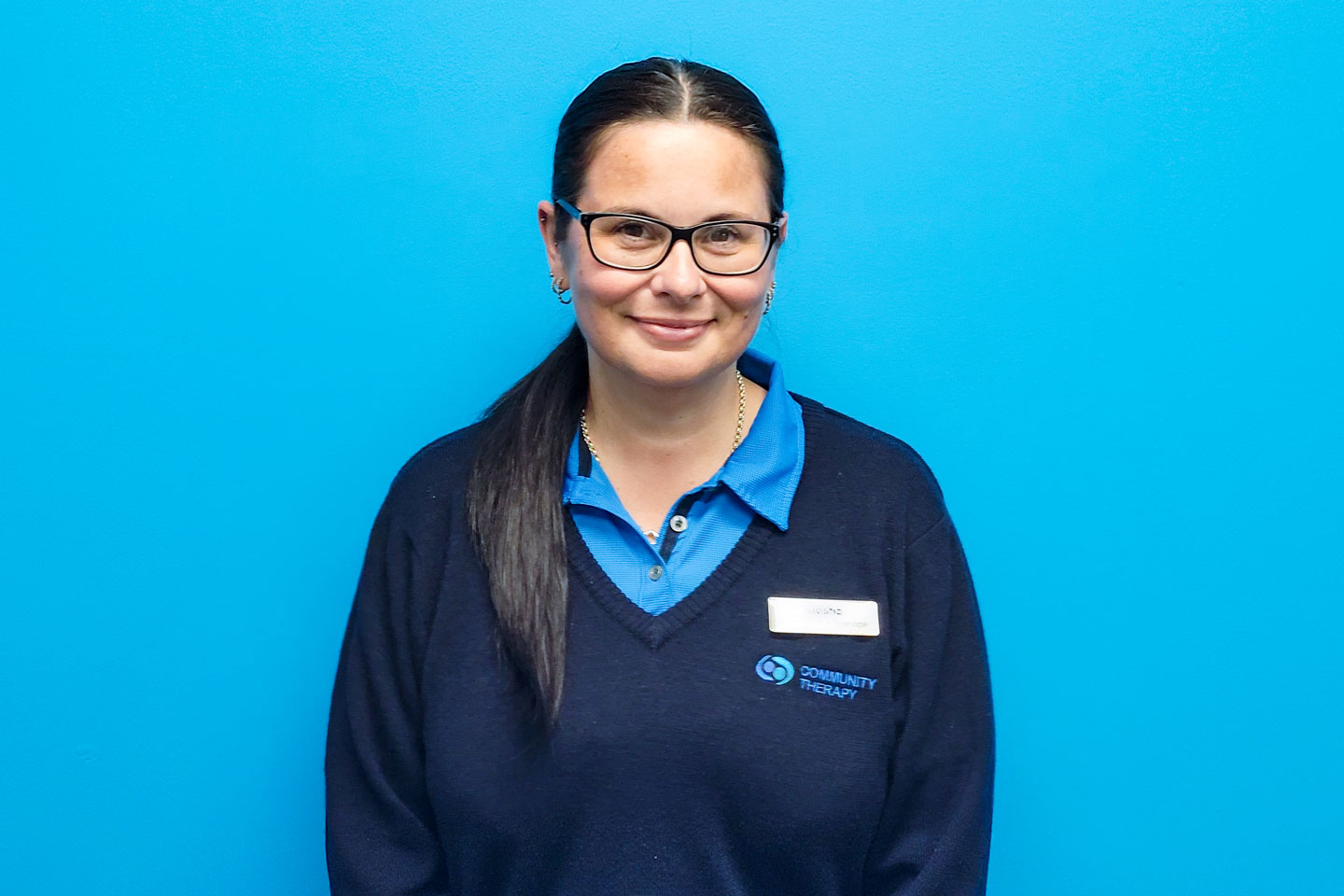Strokes
A stroke is a condition that affects the brain and there are many types of strokes, namely:
- Ischaemic (impaired cerebral blood flow)
- Haemorrhagic (rupture leading to bleeding in the brain)
A stroke can affect a person in many ways, and typically, it will be in challenging someone’s cognition and/or challenging their movement.
People also commonly experience issues with communication, either in the ability to express themselves or the ability to deconstruct and interpret information.
It can also disrupt the memory process, typically the ability to change short term memories into long term memories.
Strokes can also affect the muscles of the tongue and head and therefore cause difficulties with the ability to speak and swallow.
In terms of movement, it is commonly thought that strokes cause paralysis to just one side of the body, either their arm or their leg or both. However, strokes often cause varying degrees of paralysis, this could be minor deficits in coordination, to the loss of walking ability and beyond.
Allied Health Support – Central Coast & Hunter
How Community Therapy helps people who have experienced a Stroke
Occupational Therapy
Our Occupational Therapists working with someone living with the effects of a stroke will look at the environment the person is living in.
We will assess to see if the environment is safe, what Assistive Technology (equipment) could be beneficial, and what home modifications are required.
We make recommendations that can lead to the person becoming more mobile and independent in their home.
Our Occupational Therapists are well-skilled in their ability to perform upper limb rehabilitation as well to try and improve the movement, especially the dexterity skills of a person’s hand, to be able to do things more independently with their affected arm
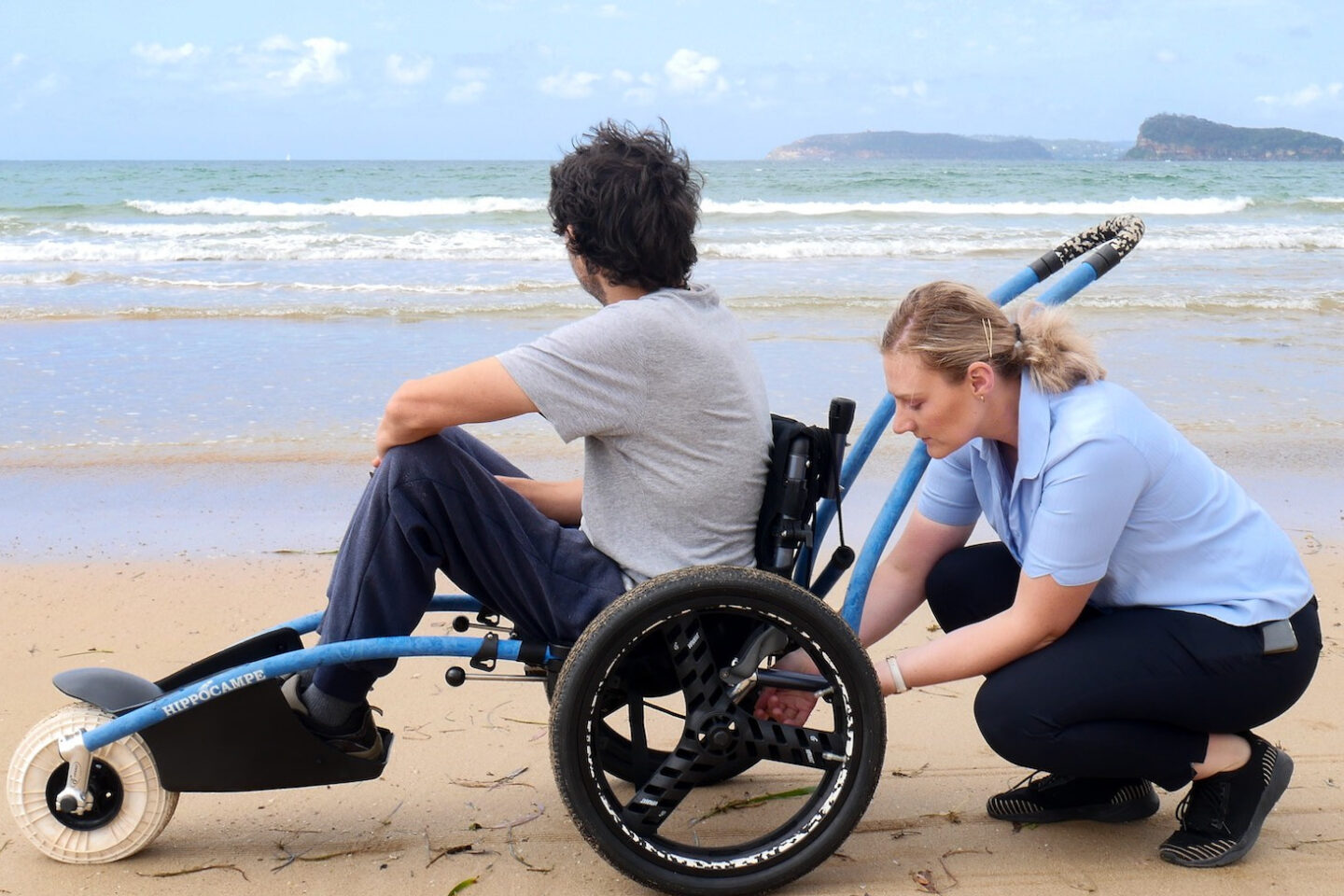
Physiotherapy
Our Physiotherapists will work on improving or optimising movement.
That is often working on strength, balance, mobility and conditioning.
Physiotheapists also support people with assistive equipment such as mobility equipment or braces to support joints and limbs.
Our Physiotherapists support people who are experiencing pain when living with a Stroke as well.
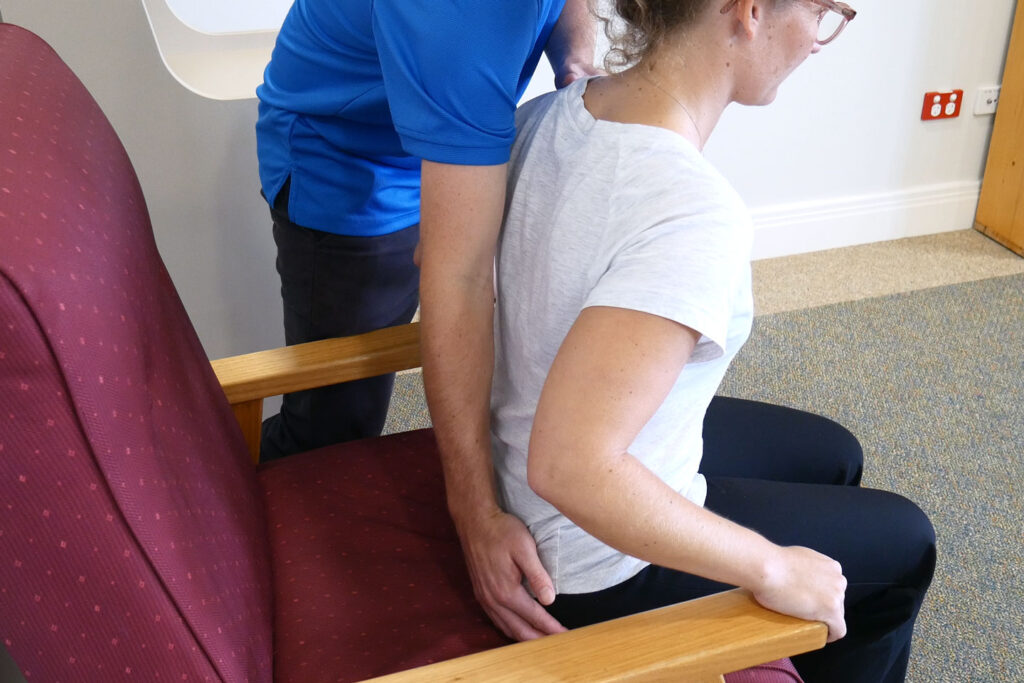
Speech Pathology
60% of people who have had a stroke will develop a swallowing difficulty, while around 20% will have difficulty using speech. A further 30% of all people who have had a stroke will have difficulty articulating ideas or comprehending written or spoken language.
People who have trouble swallowing are at risk of poor nutrition and dehydration and respiratory concerns.
Speech Pathologists provide specialised therapy and advice to recover from communication and/or swallowing impairments arising from a stroke. Starting speech pathology rehabilitation as soon as possible can assist people immensely.

Dietetics
Our Dietitians are qualified to help people make healthier choices and to plan a well-balanced diet including nutrients, vitamins and other supplements, considering each individual medical condition and personal circumstances.
Dietitians work collaboratively with Speech Pathologists to ensure an adequate nutritional intake in cases in which alterations in food texture and fluid consistency is recommended.
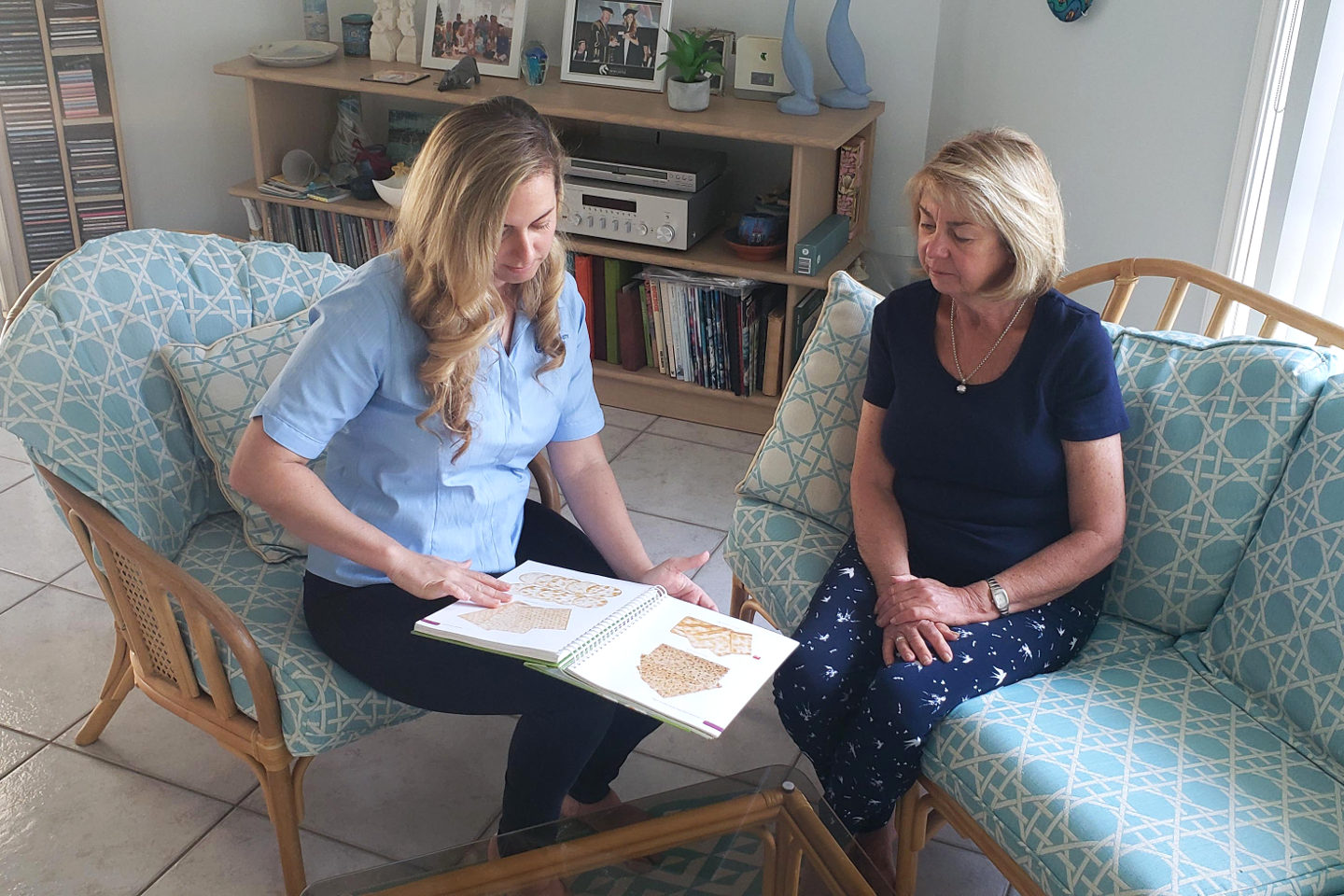
Community Therapy is here to help people who have experienced a stroke
We provide professional Occupational Therapy, Physiotherapy, Speech Pathology and Dietetics services for people who have experienced a stroke. We accept referrals from NDIS participants, home care package clients, as well as those privately paying or using private health insurance.
Upon receipt of a referral, we book an initial assessment with our clinician depending on what services are required, at a convenient time for the person and/or their support persons.

Assessment Process
Our clinicians will conduct the initial assessment, which takes approximately 60-90 minutes.
In addition to the above, we will also look at:
- Current equipment
- Testing balance
- Testing movement
- Mobility
We would also like to know the person’s meaningful goals, and what they are looking to achieve by engaging us.
Based off that, together, we’ll work out a plan of how we work towards achieving those goals.
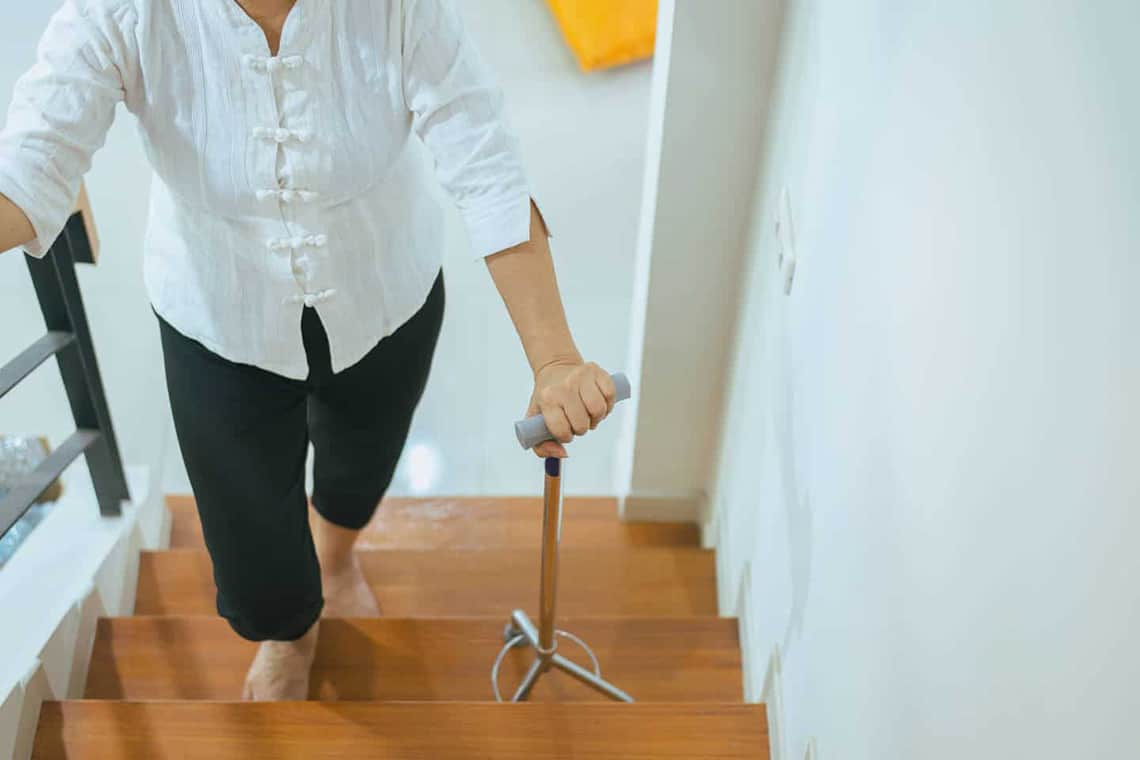
How we communicate
Our working relationship is quite personal – we communicate regularly in the way that the person wants to communicate, whether that be via phone, email or text message.
We can send our reports to coordinators or anyone that the person consents to release their information to.
We work hand in hand with builders for modifications, equipment suppliers for equipment trials, and our Physiotherapists tend to see our clients living with strokes regularly for their rehabilitation, usually fortnightly or weekly visits.
All our clinicians remain up to date with best practice for the management of strokes to ensure our clients are receiving the best care from our services.
If you would like to learn more about our services or refer to us, please head to our referral page or contact page.
